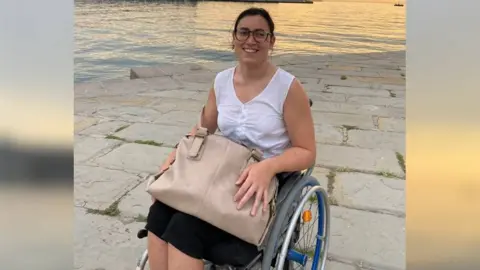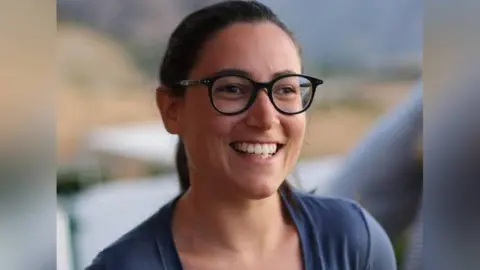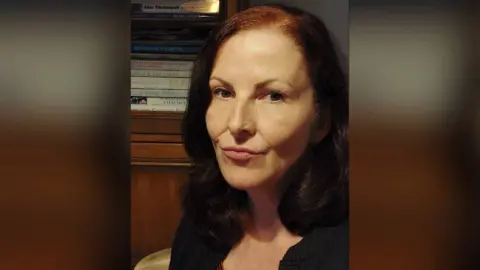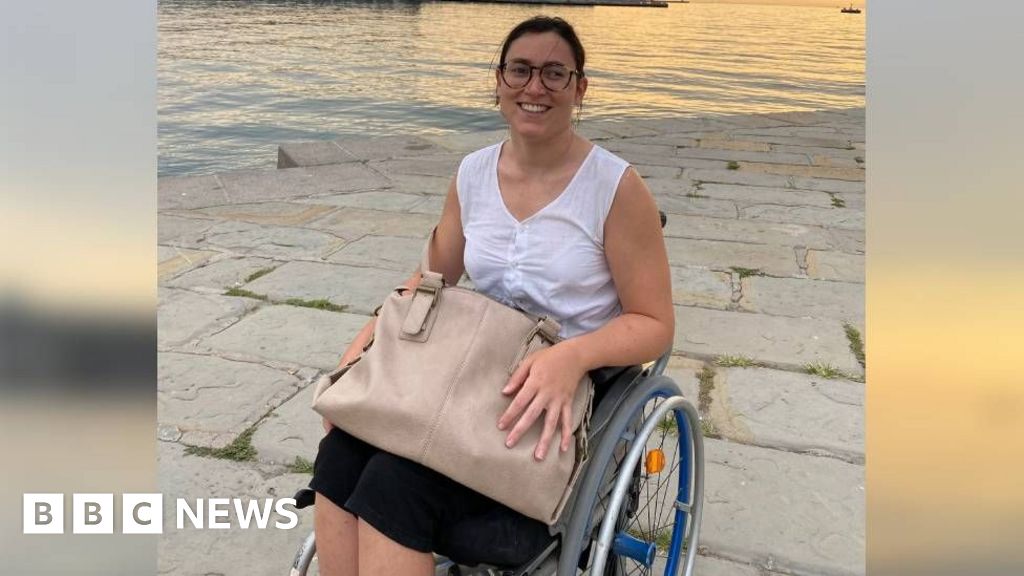 Sofia Brizio
Sofia BrizioSofia Brizo spends four hours a day on what she calls “disability admin”.
The 27-year-old PHD student, who has cerebral palsy, said she needed to spend that time on making accommodations and planning alternatives, because “the world is not accessible.”
Disability Wales said disabled people endured an “immense and often daunting” amount of administration.
A Welsh government spokesperson said it was committed to supporting the rights of all disabled people and creating an inclusive society.
‘It’s the hidden labour of disability’
Sofia, from Cardiff, who is also a disability activist lives, said it was everyday things, such as planning a train journey or booking a routine medical appointment, which can take time.
“It’s all of these little things that kind of add on to your day and something that, for a non-disabled person would take like 30 seconds, for me sometimes it could take you know half an hour,” she added.
She said she was lucky as her work in academia meant she had a degree of flexibility in her job, recalling how she recently had to leave a meeting unexpectedly to get her walker repaired at a nearby bike shop.
“I feel like my disability is a full-time job sometimes, and it’s not just because of my own body and the extra care it needs, but it’s mostly because of the inaccessible world that we live in,” she said.
 Martino Brizio
Martino BrizioThe para swimmer, from Bergamo in Italy, said she recently decided to monitor how much time she spent on these tasks, after a series of problems, and calculated it was four hours a day.
“That’s literally half of my working day and then I end up having to work weekends, but paradoxically, it’s less stressful for me to do my job at weekends.
“I can’t make phone calls about medical appointments on a Saturday or Sunday,” she added.
The campaigner said a recent attempt to book her smear test was a good example.
“I have a disability as it states in my medical record, I need my legs supported so I need a bed with stirrups.
“They say they’ll call me back in a few days. A week later I call again, it takes about an hour, it’s a different receptionist, I have to explain everything again.”
Eventually Sofia was able to book an appointment at a nearby medical centre, although when she arrived, they had booked the wrong appointment.
“The whole thing was a disaster,” she said.
 Debbie Foster
Debbie FosterEmployment relations and diversity researcher, Prof Debbie Foster, of Cardiff University, said her own ill-health and difficulties in getting back to work sparked her interest in disability and employment.
“I thought, if I’ve got lots of information at my fingertips, I know how to read things about the law and rights.
“What about other people who don’t have access to that information?”
The academic, who is also co-chair of the Welsh government disability rights task force, has written extensively on negotiating workplace adjustments, as well as the experience of disabled people in Wales during the Covid-19 pandemic.
“We need to think more in terms of an accessible world, and much more in terms of accessible design rather than just making it an individual problem – that’s when you get all the disability admin,” she added.
The professor said, at times, asking for reasonable adjustments in the workplace could feel like asking for “special favours”.
“The embedded ableism that’s in the way that we’ve designed everything, because it’s people who are able-bodied, who have done the designing,” she added.
Miranda Evans from Disability Wales said disability related administration can include navigating welfare benefits applications, searching for equipment to assist independence, researching accessible transport options, and navigating the health and social care system.
The organisation said it was estimated that 26% of Wales’ population were disabled and, with an ageing population, this figure will grow to 58% by 2035.
She added that many disabled people “confront multiple barriers throughout this journey, necessitating relentless perseverance to access the vital resources and support they deserve.”
“This systemic complexity often exacerbates their struggles, highlighting the urgent need for reform and greater accessibility” she added.
A Welsh government spokesperson said it was committed to “creating an inclusive and accessible society”.
“Our disability rights action plan, set for release in Spring 2025, aims to eliminate barriers and enhance participation for all disabled people in Wales.”






























+ There are no comments
Add yours